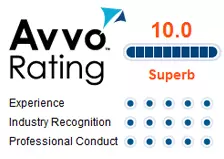[This article was originally published in SADO Criminal Defense Newsletter/DUI Defense Column, Vol. 31, No. 10, July, 2008. All rights reserved].
Michigan currently has at least 21 casinos spread throughout the state, and just this year Michigan’s House rejected legislation that would have allowed 2 additional Indian casinos that were proposed for Romulus and Port Huron. In 2006 Michigan’s casinos employed almost 15,000 people[i]. With so many Michigan citizens employed in this industry it is certainly possible that the a few of them might end up being arrested for drunk driving, and if you are asked to represent one of them, then on our client’s behalf, you should inquire as to whether or not an OWI conviction might impact their current employment or future employability.
As it turns out, even a single OWI conviction could potentially cost a present or future casino employee his or her job. This is because any individual employed by a casino or even employed by a company that provides services to a casino, must apply for an Occupational License. This rather broad definition of persons required to obtain such license certainly includes far more than the more than 14,000 persons directly employed, and might include seemingly unrelated professions, such as CPAs that work for casinos.
Occupational Licenses are governed by the Michigan Gaming Control Board, which was created within the Department of the Treasury to execute and administer the licensing, regulating and enforcing the system of casino gambling[ii]. The application process for this license includes a fairly extensive background check into the applicant’s criminal history, and specifically requires the listing of all felonies and misdemeanors for which an applicant has been arrested, detained, charged, plead to, or convicted. An individual that has been convicted of a felony is not eligible for an occupational license[iii].
Although not cause for ineligibility, even a single drunk driving conviction can still cause considerable problems. This is because the granting and the renewal of an occupational license is administered by a Gaming Control Board, and because of the discretionary powers given by statute to the Board, an applicant may be denied if he or she has been convicted of even a single misdemeanor criminal offense, not including traffic violations[iv].
A reading of the statues suggests that the Board’s main concern is with crimes of violence and dishonesty, and admittedly it is somewhat unclear how these definitions actually apply in practice to a misdemeanor OWI conviction. The point here is not to suggest that every OWI conviction will cause problems, but instead is to suggest that it might, and because of this, OWI practitioners have an obligation to fully advise their clients of this potential collateral consequence of conviction. It is clear however that any action by the Board on misdemeanor OWI is discretionary, not mandatory. It is also clear that, the Board may deny an applicant when it decides that the applicant lacks the required “moral character, reputation, or responsibility.”
The potential consequence is somewhat different for a person currently holding a gaming license. According to the statutes, a gaming license is valid for 2 years[v]. While there is no specific automatic reporting requirement, an applicant or licensee is under a continuing duty to provide information requested by the board and to cooperate in any investigation, inquiry, or hearing conducted by the board[vi]. Furthermore, any failure to provide the information requested by the Board, to assist in any investigation, inquiry, or hearing of the Board, or to comply with this act or rules of the Board may result in denial, suspension, or, upon reasonable notice, revocation of a license[vii].
It does not appear to be likely that any misdemeanor conviction of OWI would result in an investigation. An investigation is probably more likely in the case of an individual with a felony conviction. Still, it is not clear how the Gaming Board would receive notice of any conviction, since the licensee is not under an affirmative duty to report it. Rather, the main concern for licensees would arise at there application for renewal of the license at the end of the two year cycle.
After the two year license expires, a licensee is required to apply for renewal, should they want to continue to be licensed, and therefore under a further obligation to update the Gaming Board of all felonies and misdemeanors of which an applicant has been arrested, detained, charged, plead to, or convicted. At this point the board would deny the renewal to anyone convicted of a felony, and may deny anyone charged with a misdemeanor as discussed above.
As might be expected, the board does not have the final say, and with a denial comes a certain amount of due process. A denied applicant may request a hearing in front of the board. At the hearing the applicant has the burden of proving by clear and convincing evidence that petitioner should have been awarded a license[viii]. If that hearing results in a further denial, then the statute does allow for an appeal of the Board’s decision to a Circuit Court.
[i] Michigan.gov at http://www.michigan.gov/som/0,1607,7-192-29940_23422-64768–,00.html
[ii] MCLA § 432.204; MCLA § 432.208
[iii] MCLA § 432.208(3)(c).
[iv] MCLA § 432.208(6)(d)
[v] MCLA § 432.208(9).
[vi] MCLA § 432.208(10)
[vii] MCLA § 432.208(11).
[viii] MCLA § 432.1702










{ 1 trackback }